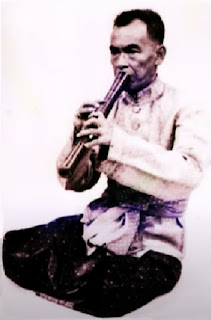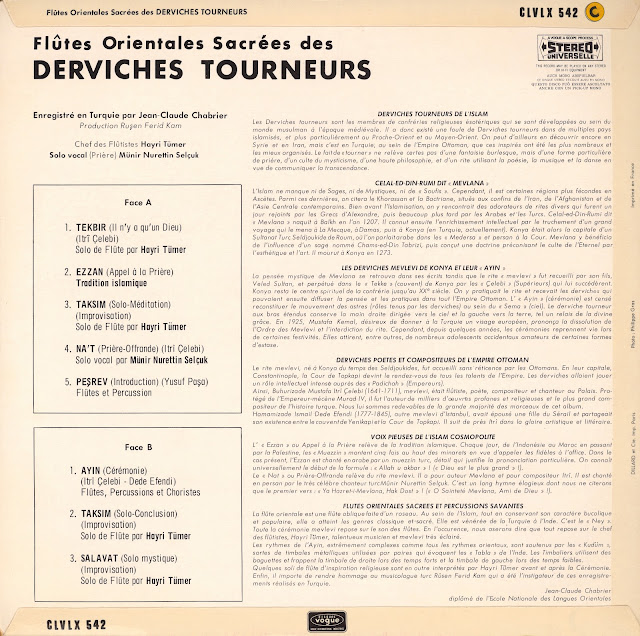THAILAND – THAÏLANDE
Chui Chai – Thiap Konglaithong (Pi nai oboe) & Usa Sukantamalai (vocalist) – Department of Fine Arts Bangkok – 0008, 1958 (7 in 45 RPM)
Our friend João recently returned from Thailand with a number of fascinating vintage Thai music recordings, including this album of music for Chui Chai, which in Thai literally means to walk in an elegant or orderly fashion, and is the name of a traditional form of Siamese dance and drama. This quirky record brimming with vitality features intense solos by Tiab Konglaithong (b.1902), a great master of the Pi Nai six-hole quadruple-reed oboe that requires the use of circular breathing to ensure a regular, uninterrupted lyrical flow, and the eminent classical female vocalist Usa Sukantamalai’s angular vocal modulations (b.1923), accompanied by ranat ek xylophones and percussion.
Notre ami João a récemment revenu de Bangkok avec des disques vintage fascinants de musique thaïlandaise, dont cet album de Chui Chai – signifiant littéralement marcher de manière élégante ou ordonnée en thaï, ou de la danse et du théâtre siamois traditionnels. Cette musique sinueuse débordant de vitalité comprend des solos intenses de Tiab Konglaithong (né en 1902) – un grand maître du hautbois à quatre anches à six trous Pi Nai nécessitant l'utilisation de techniques de respiration circulaire afin d’obtenir un flux lyrique régulier et ininterrompu – et les modulations exaltées de l'éminente chanteuse classique Usa Sukantamalai (née en 1923), accompagnée de xylophones ranat ek et de percussions.
Tiab Konglaithong
Download
Many thanks to Ween in Bangkok for providing background on Chui Chai!
Photograph above is a Siamese sculpture of the Buddha, c. 14th-15th century from https://www.vam.ac.uk/collections:
Photograph below is a vintage postcard of Bhuddist Monk Somdej Toh (1788-1872) mentoring King Chulalongkorn Rama V (1853-1910):
Please help me purchase important traditional records to pursue my global
curation project and share the best finds with you on this blog:

%20-34%2074.jpg)
%20-34%2074.jpg)



_DONE.jpg)

%200%2031.jpg)
%200%2031.jpg)
%20P%20-16%2074.jpg)




